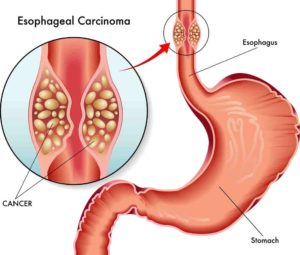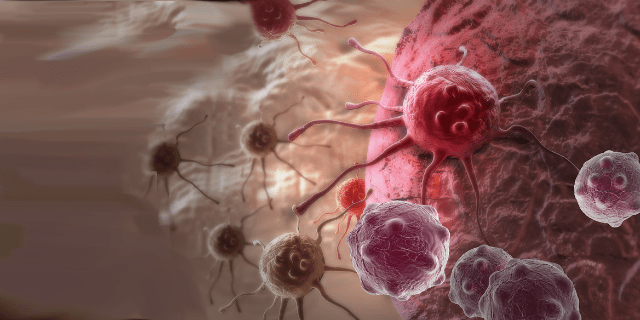Esophageal cancer patients who survive 1 year or more after potentially curative treatment for esophageal cancer can lead satisfactory lives.
Conventional esophageal cancer therapies cause short, long-term and late-stage side effects. Everyone knows this. Newly diagnosed cancer patients undergo aggressive therapy for two reasons:
- cancer patients want to live. They hope to cure their cancer.
- oncologists understate how destructive cancer therapies really are.

The study linked below was conducted to determine if patients could handle their “health-related quality of life” after potentially curative treatment. “Potentially curative treatment” is oncologist-speak for putting the patient through extreme therapy. Think “the cure is worse than the disease.“
The challenge in all this is that oncologists know that cancer patients want to be cured. It is the mission of oncologists to cure the cancer patient. The dirty little secret of oncology is that oncology can put the patient through hell for months or years and still not cure the patient. The proof of this statement is that the average five-year
survival for esophageal cancer patients is 8%-13%. The conclusion of the study below explains that the EC patient can lead a “satisfactory” life. If you have been diagnosed with EC and the diagnosis is for relatively late-stage EC then the best you can hope for is a satisfactory life after potentially curative treatment.
Have you been diagnosed with EC? What stage? Scroll down the page, post a question or comment and I will reply to you ASAP.
Thank you,
David Emerson
- Cancer Survivor
- Cancer Coach
- Director PeopleBeatingCancer
Objective-Clinical outcomes have been investigated extensively in studies of esophageal cancer treatment. Less is known about the long-term health-related quality of life outcomes. The aim of this study was to assess a range of health-related quality of life outcomes in patients with esophageal cancer treated with potentially curative intent at least 1 year earlier.
Methods-Between January 1995 and December 2007, 163 consecutive patients with cancer of the esophagus underwent a potentially curative treatment. All patients with a minimal follow-up of 1 year and without tumor recurrence were eligible. Questionnaires included the European Organization for Research and Treatment of Cancer core questionnaire (QLQ-C30), the European Organization for Research and Treatment of Cancer esophageal cancer-specific questionnaire (QLQ-OES18), and additional questions concerning survivorship issues.
Results-Thirty-seven patients met the inclusion criteria, of whom 36 completed the questionnaires.
- 21 patients had received neoadjuvant therapy followed by surgery,
- 9 patients had undergone surgery only, and
- 6 patients had chemoradiation only.
Median survival was 54 (range, 16–162) months. In general, patients reported better health-related quality of life than a reference sample of patients with esophageal cancer but somewhat compromised the health-related quality of life compared with a reference sample of individuals from the general population. Although some symptoms continued to persist, patients’ overall evaluation of their treatment, employment status and finances, body weight and image, and survivorship issues was positive.
Conclusions-Patients who survive 1 year or more after potentially curative treatment for esophageal cancer can lead satisfactory lives. The results of this study can be used when informing patients with esophageal cancer about the long-term effects of treatment.




